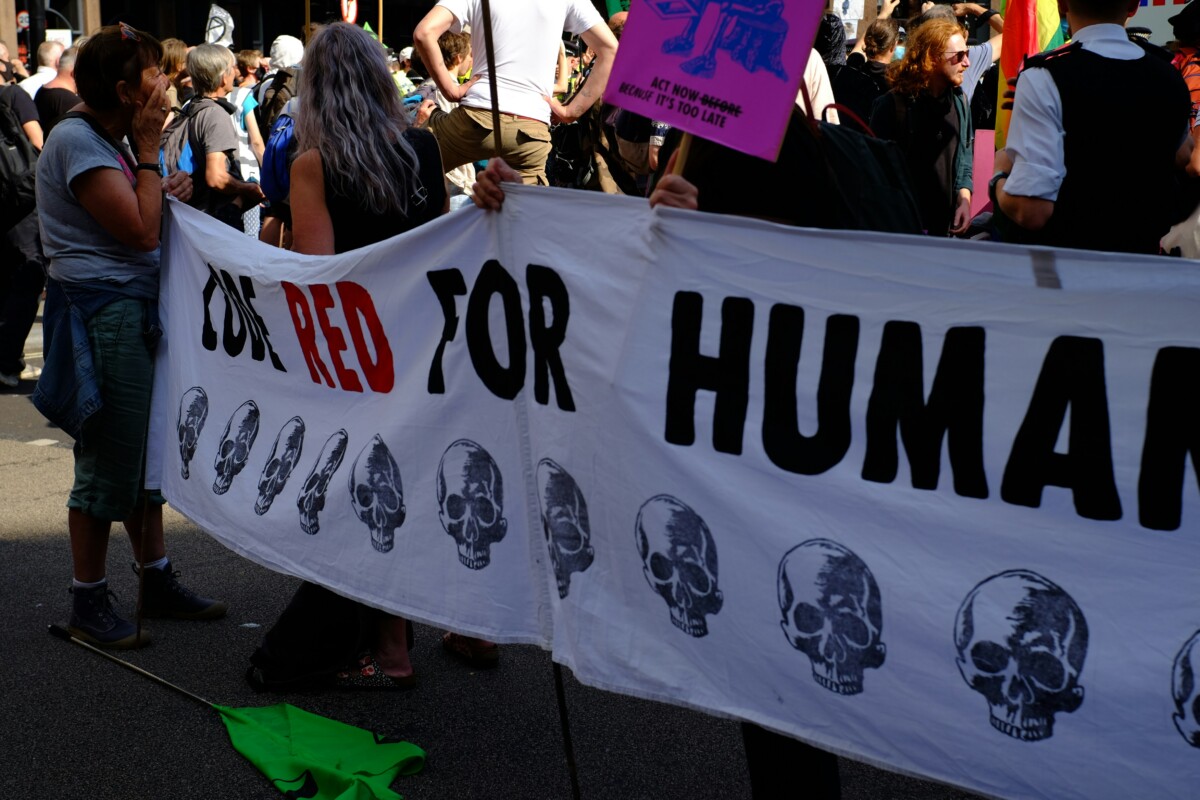Listen to the full podcast episode on YouTube, Spotify, and Apple Podcasts.
From Marketing to Climate Advocacy
Nick’s journey into the climate sector began with frustration and a keen understanding of messaging. Coming from a background in advertising and marketing, he recognised early on that the language around sustainability was alienating.
“In the ‘90s, terms like ‘sustainable development’ were vague and misunderstood,” he recalled. “If you asked someone on the street what it meant, you’d get a blank stare.”
This disconnect drove Nick to establish the Resource Use Institute, focusing on practical solutions rather than abstract concepts. Later, he founded Green Angel Syndicate, now the UK’s leading angel investment network specialising in climate innovation. “We needed to move away from vague ideals and start addressing tangible issues like resource use and carbon emissions,” he explained.

The Problem with ESG
One of Nick’s sharpest critiques during the podcast was aimed at ESG (Environmental, Social, and Governance) frameworks. He described ESG as “an acronym soup” that conflates unrelated issues, making it harder for people to grasp its purpose.
“The complexity of ESG dilutes its impact,” he argued. “We need a simpler framework that everyone can understand and act upon.”
Nick proposed a shift in focus to carbon emissions and ecosystem regeneration—concrete, measurable areas where progress is critical. “The loss of biodiversity is a symptom of ecosystem degeneration. If we focus on regenerating ecosystems, we address the root cause.”
Fighting Misinformation with Clear Communication
Another key point was the need to counter climate change denial with effective messaging. Nick drew parallels between today’s climate sceptics and historical examples of misinformation, such as the tobacco industry’s denial of links between smoking and lung cancer.
“They’re using a selling message that climate action is a scam designed to exploit the public. It’s a powerful narrative, and we need to counter it with something stronger.”
Nick called for aggressive, targeted communication to combat these narratives. “If you can’t sell it, you can’t succeed. We need to package our message in a way that’s more compelling than the sceptics’.”
The Power of Persuasion
Central to Nick’s approach is the idea of persuasion. He emphasised that effective climate messaging must connect with people on a personal level. “You have to talk about how these issues impact individuals directly,” he said.
“Telling someone they’re doomed isn’t helpful. Instead, show them how climate action benefits their lives and future generations.”
Nick criticised groups like Extinction Rebellion for alienating the public with extreme tactics. “Disruption doesn’t persuade—it irritates,” he stated. “We need to focus on measured, relatable messaging that aligns with people’s everyday experiences.”

A Magic Wand for Regulation
When asked what change he would make if given a magic wand, Nick’s answer was unequivocal: regulation. “We need enforced targets for degrowth, carbon removal, and ecosystem regeneration,” he said. “The corporate world won’t act unless it’s compelled to.”
He compared the urgency of climate action to the rapid policy shifts during the COVID-19 pandemic.
“Governments proved they could act decisively when faced with a crisis. Climate change demands the same level of urgency.”
Simplify to Amplify
Nick’s overarching message is clear: simplicity is the key to driving climate action. By stripping away jargon and focusing on practical, relatable solutions, we can inspire individuals and organisations to act. “Save nature because only nature can save you,” he summarised—a concise, impactful mantra that encapsulates his philosophy.
As the conversation concluded, Nick left listeners with a challenge: rethink how we communicate about climate change.
“We’re not just fighting for the planet—we’re fighting for people. And to win that fight, we need to speak their language.”
Sponsored by...
truMRK: Communications You Can Trust
👉 Learn how truMRK helps organisations strengthen the credibility of their communications.
Want to be a guest on our show?
Contact Us.
The Responsible Edge Podcast
Queensgate House
48 Queen Street
Exeter
Devon
EX4 3SR
Recognition.
Join 2,500+ professionals.
Exploring how to build trust, lead responsibly, and grow with integrity. Get the latest episodes and exclusive insights direct to your inbox.
© 2025. The Responsible Edge Podcast. All rights reserved.
The Responsible Edge Podcast® is a registered trademark.
Sponsored by truMRK
© 2025. The Responsible Edge Podcast

